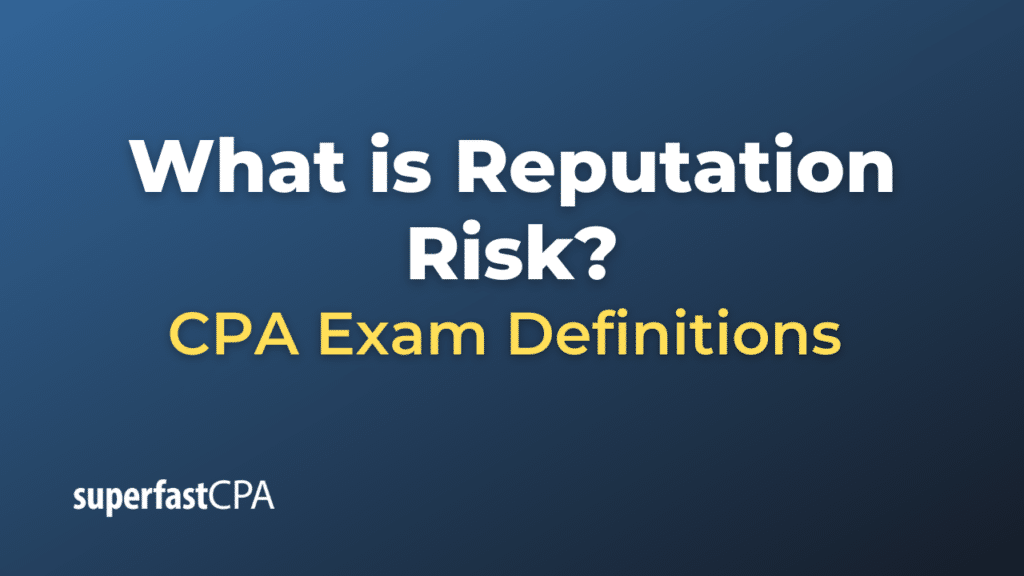Reputation Risk
Reputation risk refers to the potential for negative publicity, public perception, or uncontrollable events to adversely affect a company’s reputation, thereby causing a loss. This type of risk can lead to a decline in the customer base, costly litigation, reduced revenue, and the loss of shareholder value. Reputation risk can stem from a company’s own actions, the actions of individuals affiliated with the company, or external factors.
It’s crucial to understand that reputation risk can affect both tangible and intangible assets. While financial performance may suffer directly, intangibles like brand value, customer loyalty, and employee morale can also be impacted, leading to long-term repercussions.
Some common triggers for reputation risk include:
- Operational Incidents: Failures in a company’s core operations, such as product recalls or service disruptions.
- Legal/Regulatory Actions: Investigations or fines by regulatory bodies, litigation, or other legal issues.
- Business Ethics and Conduct: Scandals related to company practices, unethical behavior, financial irregularities, or data breaches.
- Communication Failures: Inadequate or misleading communication with stakeholders or mishandling of public relations situations.
- External Events: Negative news or events in the broader industry or environment that affect the company indirectly.
Companies often establish reputation risk management strategies to monitor and mitigate potential threats to their reputation. This can include proactive measures like public relations campaigns, ethics training, compliance programs, and crisis management planning.
Example of Reputation Risk
Let’s consider a hypothetical major automobile manufacturer, AutoMega Corp. AutoMega has built its brand on safety, reliability, and innovation. Over the decades, it has enjoyed significant consumer trust and a strong market position.
An investigative journalism piece reveals that AutoMega had knowledge of a faulty ignition switch in one of its popular car models but did not initiate a recall. Instead, internal documents showed that they tried to minimize the issue to save on the recall costs. Tragically, accidents related to this fault have resulted in multiple fatalities.
- Immediate Public Backlash: Social media campaigns emerge, urging consumers to boycott AutoMega. Hashtags related to the controversy trend worldwide.
- Financial Impact: AutoMega’s stock price drops significantly. They also face class-action lawsuits from affected families and penalties from regulatory bodies.
- Lost Business: Dealerships report decreased foot traffic and a slump in sales. Competitors capitalize on the situation by advertising their own safety records and features.
- Brand and Trust Erosion: Previously loyal customers begin to question the brand’s commitment to safety, a core tenet of its identity. The brand value drops, and trust is eroded, which is not easy to rebuild.
- Employee Morale: Employees, who once took pride in their affiliation with a reputable company, are now facing tough questions from family and friends. Some consider leaving due to the negative association.
Mitigation Efforts: AutoMega rolls out a multi-pronged strategy to manage the crisis:
- They initiate an immediate recall of affected vehicles.
- The CEO publicly apologizes and commits to an independent review of the company’s safety protocols.
- They establish a fund to compensate affected families.
- AutoMega invests in a brand rehabilitation campaign focused on its dedication to safety and its customers.
Conclusion: Even with mitigation efforts, the damage to AutoMega’s reputation is significant. The company’s recovery is slow and costly, demonstrating the profound impact of reputation risk. This hypothetical example showcases the ripple effect that a single reputational event can have across various aspects of a business, from finances to brand perception to employee morale.













